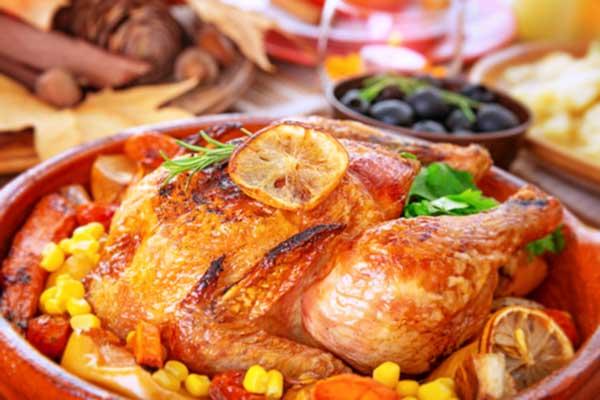Cooking Safety Tips for This Thanksgiving

Every year people are injured through fire and cooking accidents, with Thanksgiving being one of the most hazardous times of year. In fact, there are roughly three times as many fire-related emergencies during Thanksgiving celebrations as there are at the other times of the year.
Everyone wants a safe, happy and healthy get-together with their family and friends, so here are the top hazards to beware of – and what to do if an accident happens, despite taking all the necessary precautions:
Top Hazards When Cooking at Home
There’s nothing like home cooking, particularly for special family occasions like Thanksgiving. Staying safe in the kitchen often takes second place when there’s the distraction of excitement over reunions, or kids’ and pets’ antics. Distractions, when you’re cooking, are one of the primary home safety hazards, and can easily add disaster to the day’s memories. Here are the top five hazards to watch out for when cooking:
- Accidentally burning objects – Around 16% of the home fires that cause deaths are caused by kitchen utensils or clothing catching fire. The prime candidates for catching fire are loose clothing, towels, wooden utensils, oven mitts, food packaging and built up grease in the cooking area.
- Clothing fires – When you’re cooking, wear close-fitting clothes, especially sleeves. If sleeves are loose, roll them up tightly so they can’t snag around pan handles or droop into open flames on gas burners. Make sure the area you’re cooking in is grease-free and clean, and all combustible materials such as oven mitts and towels are kept well clear of open flames.
- Leaving cooking unattended – The temptation to walk away from the cooking food is strong when your guests are around and there is fun or activity going on in a neighboring room. Never leave pans unattended while you’re broiling, baking or roasting, as they need regular checking. Using a timer will remind you that you need to attend to the food. Timers are a good idea anyway since food tastes much better when it’s not under- or over-cooked.
- Leaving cooking equipment turned on – It’s easy to forget to turn off cookers or grills when cooking is finished. It’s also possible to accidentally turn them on. Stay alert, switch off the burners and ovens as soon as you’ve finished, and try not to use them at all when you’ve had a few drinks or are feeling sleepy.
What to Do if there is a Fire
- Do not use water on grease fires. Instead of putting out the fire, you will feed it. Smother grease fires by using a fire extinguisher, salt or baking soda. Alternatively, slide a tight-fitting lid over the burning pan and turn off the heat. Leave the lid in place until the pan is completely cold. Keeping a container of baking soda near the stove is a good safety tip for the holiday season.
- For oven fires, turn off the oven and keep the door closed.
- Most important, get out of the building, closing all the doors behind you to slow down the spread of the fire. Don’t stop to gather possessions. Most ‘things’ are replaceable. People are not.
- Call 911, or your local emergency number, once you are out of the building.
Cooking Safety Tips
Fire isn’t the only risk to health and home during Thanksgiving. Many people accidentally poison themselves and their families by not cooking their turkey properly:
- Make sure your turkey is totally thawed if you’re buying it frozen. Ideally, thaw it in the refrigerator, or in a sink of cold water that’s changed every thirty minutes. Left out in room temperature air, after two hours the temperature of the meat is high enough for bacteria to start growing. Keeping it under water or in the refrigerator helps keep it isolated from danger.
- Always keep raw turkey away from other food so you don’t spread bacteria. Spreading bacteria also happens when you wash the turkey. Washing isn’t necessary since correct cooking is the only way to destroy the bacteria that makes us ill.
- If you’re stuffing the turkey, make sure it’s cooked all the way through. Using a food thermometer, check that the center of the stuffing has reached at least 165 degrees F.
Accidents happen no matter how hard we try to avoid them, but mostly they occur when we get distracted or lose concentration, even just for a moment. If you can, make your kitchen a kid-free zone when you’re cooking, have a fire extinguisher close by, and focus on the task at hand.
We hope you have a happy, memorable Thanksgiving holiday without any unwanted dramas to spoil the day.




